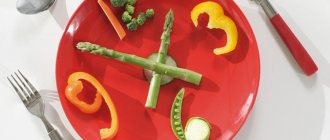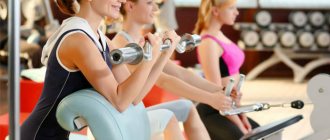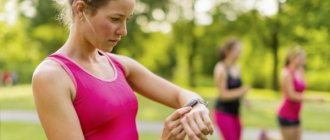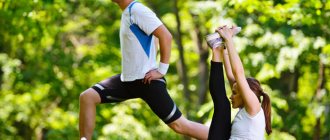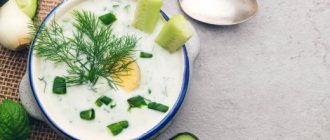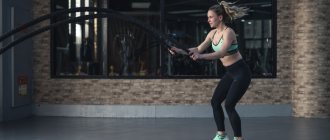At first glance, it may be difficult to believe that bodybuilding can be based on a plant-based diet. But vegan bodybuilders easily build muscle mass and increase strength.
Any athlete who has been working out in the gym for quite a long time and watches his diet sooner or later begins to wonder whether it is possible to build muscle mass without eating meat, and whether refusing it will affect endurance.
Ask any vegan and they will tell you that the false picture of hunger and weakness painted by ignorant red meat eaters is anything but accurate. Even experienced vegans are sometimes impressed by the incredible muscles that appear on their colleagues.
Vegan bodybuilders are the best proof that vegan nutrition is effective for gaining mass and maintaining the necessary energy levels. They win titles in various categories by getting not only protein but also minerals from plant sources.
Following them, competitors on the stage began to reconsider their diet and proved that animal protein is not needed to gain muscle mass. The fundamental principle is the work you put in in the gym and your genetic predisposition to build muscle.
Meet the most famous bodybuilders who can easily do without beef in their daily menu. And the next time someone scoffs at the idea of going vegan, show them these examples.
Types of vegetarianism
Vegetarianism is divided into 5 main types:
- lactose;
- ovolactose;
- vegetable;
- veganism;
- raw food diet.
The raw food diet, in turn, is divided into fruitarianism and monoeating.
Lacto-vegetarianism is the most common type of diet. Its essence lies in the exclusion of animal products. Vegetarians use, for example, milk, kefir and other similar products as a source of protein. This type of diet is considered one of the safest for the body.
Lacto-vegetarian bodybuilders exclude all meat products without exception. But their body is still protected from exhaustion, because it receives the necessary elements. After all, lacto-vegetarianism allows you to eat eggs in any form, and you can also consume all dairy products.
On a note! It is noteworthy that some foreign vegetarian athletes were able to achieve significant results in bodybuilding without meat. And they were not prevented by the lack of animal proteins.
Ovo-vegetarianism is similar to ovo-acto-vegetarianism, but in this case milk and dairy products are excluded, but eggs are allowed. The argument of adherents of this diet is “store-bought eggs are not fertilized, so there is nothing to kill there.” Milk is an indirect exploitation of animals, which means it is, at a minimum, unethical.
It is much more difficult to switch to ovo-vegetarianism, because without the elements contained in dairy products, the body has a harder time.
Veganism is the last stage that experienced vegetarians come to. With this diet, eating any animal products, including eggs and milk, is not allowed. Veganism is the predecessor of other types of vegetarianism and, in fact, their “last stage”. Switching to it abruptly is quite dangerous for health.
People who adhere to this type of diet often refuse any products obtained with the help of animals. They don't wear fur coats, leather boots, etc. Paying attention to labels in stores, vegans carefully study the composition for the presence of albumin and even gelatin.
Raw food diet is a separate type of diet. It is divided into fruitarianism and monoeating. The diet of vegetarian bodybuilders in the first case consists of fruits, nuts, seeds, and vegetables. Mono-eating is a system that involves eating foods of plant origin separately, that is, for example, one plum for breakfast, three bananas for lunch.
General information
Currently, many people around the world adhere to
the principles of vegetarianism Therefore, questions about how vegetarian athletes should eat, and whether strict vegetarianism and sports are compatible, are quite relevant. However, life proves that people who do not consume animal food can achieve high results and become successful athletes. But to do this, they need to organize the right lifestyle and diet so that the body receives the maximum amount of products necessary for a full existence, building muscles and increasing endurance.
How to create the right menu for vegetarian athletes, how to gain muscle mass and get the desired results will be discussed in the article below.
Disadvantages of vegetarianism and advantages of meat
The main disadvantages of vegetarianism are as follows:
- Death of intestinal microflora due to products such as garlic and onions;
- Insufficient supply of the body with useful amino acids, which vegetable protein cannot replace animal protein in any form;
- There is a risk of developing protein deficiency and kwashiorkor disease.
Note! Meat contains heme iron, vitamin D and other beneficial vitamins. The body also takes from it complete proteins, which are not found in products of plant origin.
What to eat before training as a vegetarian
In order to build muscle mass, you need to eat a certain way and understand what to eat before and after training. Poor nutrition can cause serious inconvenience during training and also have a negative impact on the human body.
You should eat an hour or an hour and a half before training. Never eat immediately before starting exercise, and you should not exercise on an empty stomach, as this will lead to decreased endurance and strength.
Before visiting the gym, you should not eat foods high in fat, eat more proteins and carbohydrates. Pre-workout meals for a vegetarian should contain about 25 g of vegetable protein and about 45-70 g of slow carbohydrates (pasta from durum wheat, milk, cottage cheese, kefir, pearl barley porridge, oatmeal, buckwheat porridge, feta cheese, grape juice, Rye bread)
Also, to gain muscle mass, vegetarians can use all kinds of gainers and protein supplements with plant-based protein, no later than an hour before training.
Advantages of vegetarianism and disadvantages of eating meat
The main advantages of vegetarianism are justified by the following facts:
- Eating a minimum of cholesterol;
- Increased amounts of folic acid, potassium, magnesium, which are found in plant foods;
- Reducing the risk of chronic diseases caused by saturated fats found in meat.
The disadvantage of the meat menu is that it is harmful. If you eat only meat, your body will begin to accumulate harmful saturated fats and cholesterol. These foods increase the risk of cancer.
Sports diet for vegetarians
There is a so-called “3-2-1” energy balance rule, which is calculated for vegetarian athletes taking into account 1 kg of weight:
- 50 kcal;
- 3 g carbohydrates;
- 2 g protein;
- 1 gram fat.
This rule is the basis for bodybuilders who decide to give up meat.
Important! A sports diet, by its very nature, is quite difficult to implement. After all, it requires attention to the balance of all macro- and microelements, which are calculated taking into account the consumption of dozens of different foods.
Vegetarian menu for muscle growth
The universal menu presented below will be useful to anyone who has set the goal of increasing muscle mass, taking into account a complete or partial refusal of meat. These foods should not be excluded from the diet, regardless of the type of vegetarianism.
So, what vegan bodybuilders can and should eat:
- Dried fruits containing carbohydrates and glucose;
- Vegetables and fruits (tomatoes, apples, rich in iron and vitamin B6);
- Green tea, which has a beneficial effect on the nervous system;
- Oat porridge containing several types of slow carbohydrates.
Important! In combination with some bioactive additives, the presented menu will provide the body with all the necessary elements, even if you give up meat. Moreover, it will stimulate muscle growth due to the content of microelements necessary for this.
Nutrition strategy for vegetarians
In their educational material entitled “Protein and Amino Acids in Sports,” scientists from the EAS Academy, which specializes in nutrition for athletes, note that the combination of two or more plant sources of “incomplete” protein allows the formation of a protein “complete” in the composition of essential amino acids . As a result of combining various sources of plant protein, we obtain the so-called complementary, or complementary protein.
Below is a table of complementary plant-based protein sources from the American Society of Nutrition :
An example would be a combination of grain and legume protein sources. Legumes are rich in the essential amino acid lysine, but poor in methionine, and grains are the opposite:
Legumes: methionine – ↓, lysine – ↑ Grains: methionine – ↑, lysine – ↓
By combining legumes with grains, we get the full composition of essential amino acids:
Rice + beans = full composition of essential amino acids
It is worth emphasizing that there is no need to scrupulously combine plant sources of protein at every meal in order to achieve complementarity of essential amino acids. The main goal is to consume a sufficient variety of plant-based protein sources that will complement each other, spreading them out throughout the day.
For example, if you eat legumes poor in methionine for breakfast and later snack on almonds rich in this amino acid, you will eventually get the required amount of methionine.
It's a good idea to note that unless you're vegan and abstain from eggs and/or dairy, the plant protein you consume should count toward your total daily protein intake.
In his book entitled “The Protein Book,” American specialist Lyle MacDonald explains this by saying that the vegetable protein consumed in this case “evens out” its amino acid composition and is equal to complete protein.
The Best Foods for Vegetarian Athletes
To build strong muscles, which will be no worse than muscles from a meat diet, vegetarian athletes consume the following “superfoods”:
- milk;
- blueberries;
- bananas.
Milk contains protein, lactose, and calcium. And these are most of the fundamental elements necessary for an athlete’s body. It also contains calcium, potassium, magnesium and equally important electrolytes. They replenish water balance after a grueling workout.
Bananas should be eaten after sports activities. This is a great way to quickly regain strength. at the same time, you can even grind the peel, because it is rich in potassium, lutein and serotonin. But you also shouldn’t consume a lot of bananas; one at a time after training is enough.
Blueberries, like bananas, are an excellent restorative food. When consumed within 30 minutes after a sports activity, it gives the body a dose of antioxidants, as well as “fast” carbohydrates. Glucose quickly enters the blood and gives strength. It's good to mix bananas and blueberries into smoothies.
About nutrient deficiencies in vegetarians
As discussed, a well-planned vegetarian diet can provide athletes with adequate amounts of all essential nutrients. However, the US Academy of Nutrition and Dietetics notes several essential nutrients that vegetarians need to pay special attention to. These include iron, zinc, calcium and vitamin B12. In addition, experts from the National Collegiate Athletic Association (NCAA) also include vitamin D and omega-3 fatty acids in this category.
Iron
Compared to non-vegetarians, vegetarian athletes who avoid meat products may have compromised iron status. It is emphasized that although the studies noted iron deficiency in vegetarians, iron deficiency anemia or a decrease in hemoglobin concentration was not observed in them. Vegetarian athletes can reduce the risks associated with iron deficiency by consuming fortified grains and grains, green leafy vegetables, tofu, lentils, seeds, nuts and dried fruits .
Zinc
As with iron, vegetarians absorb less zinc compared to omnivores. Plants rich in this mineral, such as legumes, whole grains, nuts and seeds, contain a lot of phytic acid, which interferes with the bioavailability (degree of absorption) of zinc. It is noted that especially vegans are at increased risk. Taking zinc as a separate supplement may be worthwhile, especially for vegans .
Calcium
Vegetarian athletes who consume dairy products can easily meet their calcium needs by drinking 240 ml of milk, 240 ml of yogurt and eating 50 grams of cheese 2 times a day. The situation is more complicated for vegans, since they have to meet their needs for this mineral by eating large amounts of nuts and seeds - the richest plant sources of calcium. Relatively good sources of this macromineral include watercress, kale, tofu, and red beans.
Vitamin B12
Some of the richest sources of vitamin B12 are dairy products, eggs and fortified soy products, so vegetarians who consume dairy and eggs are generally not deficient in this vitamin. To meet the requirements for this vitamin, vegans need to include fortified/vitaminized soy products in their diet - soy milk, tofu and soy yogurt.
Vitamin D
Vegetarians (especially vegans) are often deficient in vitamin D. This problem can be addressed by consuming vitamin D-fortified milk and increasing sun exposure. Additionally, athletes may consider consuming this vitamin as a separate supplement. Omega-3 (EPA/DHA)
Compared to linoleic (LA, omega-6), vegetarians, and especially vegans, consume relatively low amounts of alpha-linolenic (ALA, omega-3) acid, thereby disrupting the balance of omega-6 and omega-3 fatty acids in the body. More importantly, vegetarians consume virtually no two essential fatty acids, eicosapentaenoic acid (EPA) and docosahexaenoic acid (DHA).
A review in The American Journal of Clinical Nutrition provides the following recommendations for correcting the imbalance between omega-6 and omega-3 acids and reducing the risk of EPA and DHA deficiency: 1. Most fats should be obtained from sources of linolenic acid - nuts (especially walnuts), seeds (especially pumpkin), olives, avocados, soy products, as well as oils rich in monounsaturated fats - olive, canola and nuts. These oils should not be heat treated. 2. Limit your consumption of processed and fried foods that are rich in omega-6 and trans fats. 3. Take a microalgae-based DHA supplement.
Should you be concerned about eicosapentaenoic acid (EPA)? A review by American experts notes that if a person consumes enough linolenic acid (ALA) and takes a DHA supplement (10-11% of which is converted to EPA), there is no need to worry about EPA deficiency.
There is a common belief that female vegetarian athletes are at increased risk of weak or decreased menstrual periods (oligomenorrhea). However, there is evidence that this disorder is not primarily due to deficiencies in specific nutrients, but rather due to low energy intake in general (malnutrition).
Combining vegetarianism with bodybuilding
Combining vegetarianism with bodybuilding is more than a feasible task for any athlete. Interestingly, famous vegan bodybuilders came to change their diet more often for religious reasons than for health reasons.
The main rule when combining sports and vegetarianism is proper nutrition and adherence to the principle of the well-known “3-2-1” diet. It would also be a good idea to add sports supplements to your diet in the form of, for example, creatine monohydrate. The latter will supply the body with creatine, which is found in meat products. .
Note! Vitamin-mineral acids and omega-3 intake will prevent nutritional deficiencies. With all this, it is worth remembering that you need to eat a balanced diet and at least 5 times a day. After all, frequent snacks are what athletes need.
What else is missing from a plant-based diet?
There is a big risk that athletes will lack:
- calcium - it can be replenished with broccoli, spinach and sesame;
- zinc - it is found in spinach, quinoa and sprouted wheat;
- vitamin B12 - it is difficult to replenish, since it is found in meat and liver; instead, vegetarians can add brewer's yeast to the salad, eat tofu or soy meat.
However, this does not mean that vegetarians cannot exercise without health consequences. The main thing is to correctly calculate the diet and, if necessary, make up for deficiencies with the help of supplements.
Five world famous vegetarian bodybuilders
The most famous vegetarian bodybuilders are Derek Tresize, Torre Washington, Nimai Delgado, Karl Bruder and Jim Morris. The athletes managed to pump up a beautiful body that even “meat” bodybuilders would envy. One of the Russian vegetarian vegetarians is Andrei Lopushansky.
Derek Tresize
He came to veganism with his wife. A couple of spouses wanted to make their bodies beautiful, while saving the planet. The man managed to get as much as 300 grams of protein per day without eating meat. Derek now lives in Virginia with his wife and works as a professional nutritionist trainer. Tresize's anthropometry is 175 cm and 77 kg.
Torre Washington
The man has a degree in mechanical engineering and has been vegan since 1993. Torre stopped eating meat and animal products with the goal of “cleansing the world of pain and suffering.” At first I followed an ovo-lactose diet, and then switched to full veganism. The bodybuilder, with a height of 170 cm, managed to achieve 70 kg of net mass.
Nimai Delgado
This athlete is a professional mechanical engineer originally from California. He followed a lactose-free diet until 2015, and then came to veganism. The whole story began because Nimai lived in a family of religious Hindus. The bodybuilder managed to develop his own strategy for gaining weight using vegetables, fruits and natural plant and mineral supplements.
Karl Bruder
The German bodybuilder has strong muscle hypertrophy, and it is safe to say that Karl managed to achieve unique results. A man gained 6 kilograms of muscle mass in a year and a half exclusively on a vegan diet. Until 2016, Bruder ate animal products, but for the sake of high achievements he decided to change his diet.
Jim Morris
This is the now deceased American bodybuilder. He was the most famous and competitive bodybuilder for 30 years. The man came to veganism only at the age of 51, after finishing his career. Until this time, I adhered to a standard diet. He changed his diet due to constant indigestion, which he openly stated.
These people are a successful example of combining vegetarianism and bodybuilding, who came to veganism, for the most part, for ethical and religious reasons. And for Jim Morris, for example, meat caused indigestion, which is another disadvantage of animal protein. Its excess often causes such conditions. Therefore, if they visit you, do not be afraid to give up meat, because it is possible to get pumped up on a vegetarian diet.
How to eat to build muscle
Below we will look at how to solve major nutrition problems and accelerate muscle growth on a plant-based diet.
Increase your calorie intake
To build muscle, calorie intake should be about 15% higher than energy expenditure. You can do without an increase in the Effect of nutritional intervention on body composition and performance in elite athletes, but in any case, the calorie content of the diet should be in balance with energy consumption.
This can be a problem because the abundance of fiber in a vegan diet quickly leads to satiety. Therefore, focusing on the feeling of hunger is not the best option.
First, calculate your calorie intake using the Mifflin-Geor formula:
For men: 5 + (10 × weight [kg]) + (6.25 × height [cm]) − (5 × age [years]) × 1.55 (adjusted for training 3 times a week).
For women: ((10 × weight [kg]) + (6.25 × height [cm]) − (5 × age [years]) − 161) × 1.55 (adjusted for training 3 times a week).
Then evaluate your daily diet and calculate whether you are consuming enough calories. If the numbers don't add up, use several strategies:
- Eat more often . Add snacks in between meals.
- Choose high-calorie foods. Load up on nuts, seeds and dried fruits, season salads and dishes with vegetable oils.
- Make protein shakes and smoothies from milk (can be replaced with almond or coconut milk), seeds, nuts, grains, bananas and berries. This smoothie is high in calories and protein, and drinking it is much faster and easier than eating a plate of vegetables.
Add more protein
Protein is extremely important for building muscle mass. Moreover, not only its quantity matters, but also the source of its receipt. The fact is that plant foods contain Vegan diets: practical advice for athletes and exercisers antinutrients - trypsin inhibitors and phytic acid, which interfere with the absorption of protein and beneficial microelements.
Therefore, in the absence of meat in the diet, it is especially important to monitor sufficient consumption of high-protein foods and count the amount of this macronutrient.
If you are a vegetarian, aim for 1.4 to 2 g of protein per 1 kg of body weight, if vegan - 1.8 to 2.7 g per 1 kg of body weight.
Divide the daily amount of protein into all meals, try to include at least 0.4–0.5 g of protein per 1 kg of body weight in each of them.
Consume enough foods with leucine
As we mentioned above, building muscle requires the amino acid leucine, which is easier to obtain from animal sources than plant sources.
But there is good news: there is a plateau after which an increased dose of leucine no longer has an effect. It is enough to consume The effects of 8 weeks of whey or rice protein supplementation on body composition and exercise performance 0.05 g per 1 kg of body weight, or 2–3 g per day, for maximum protein synthesis to occur in the body. And it doesn’t matter what sources you got it from - meat or soy.
Leaders of BCAA Benefits: A Review of Branched‑Chain Amino Acids in terms of the amount of leucine among plant sources - tofu, pumpkin seeds, quinoa, nuts.
Include processed foods in your diet
For muscle growth, they recommend Macronutrient considerations for the sport of bodybuilding. consume 4–7 g of carbohydrates per 1 kg of body weight. Due to the abundance of grains, fruits and vegetables, vegetarians and vegans tend to meet this standard.
However, if you don't eat enough and try to increase your diet with legumes, oatmeal, potatoes and fruits, digestive problems may arise due to lectins, resistant starch and high amounts of fiber.
Therefore, it makes sense to increase the amount of carbohydrates through rice, pasta, noodles and buckwheat.
These foods have less fiber, so you can eat more and reach your limit without stomach and intestinal problems. For the same purposes, you can remove the skins from vegetables and fruits.
Eat enough fat
Fats are necessary for the production of testosterone, the male sex hormone that promotes the growth of muscle tissue. To build muscle, it is recommended to consume 0.5–1.5 g of fat per 1 kg of body weight. To catch up with your norm, consume nuts, seeds and vegetable oils. For example, olive or argan oil increases testosterone levels no worse than animal products.
It is also important to get enough Effect of marine-derived n-3 polyunsaturated fatty acids on C-reactive protein, interleukin 6 and tumor necrosis factor α: a meta-analysis of omega-3 unsaturated fatty acids, which prevent inflammation. To obtain these substances, add Bioavailability and potential uses of vegetarian sources of omega‑3 fatty acids: a review of the literature, What are the best sources of omega‑3? The diet includes chia seeds, hemp and flaxseed oil, walnuts, nori and other edible algae. Chlorella and spirulina powders and omega-3 algae supplements are also suitable.
Choose foods rich in microelements and vitamins
Supplement your diet with plant-based sources of beneficial microelements and vitamins necessary for health and maintaining training performance:
- Vitamin B12 : plant milk, fermented soy, mushrooms, fortified foods with added B12.
- Iron : grains and legumes, nuts, seeds, green vegetables.
- Zinc : legumes, nuts, oatmeal, wheat germ.
- Calcium : tofu, broccoli, sesame, almonds, garlic, parsley, soy, hazelnuts.
- Iodine : seaweed, potatoes, cranberries, iodized salt.
- Vitamin D : mushrooms grown outdoors.

